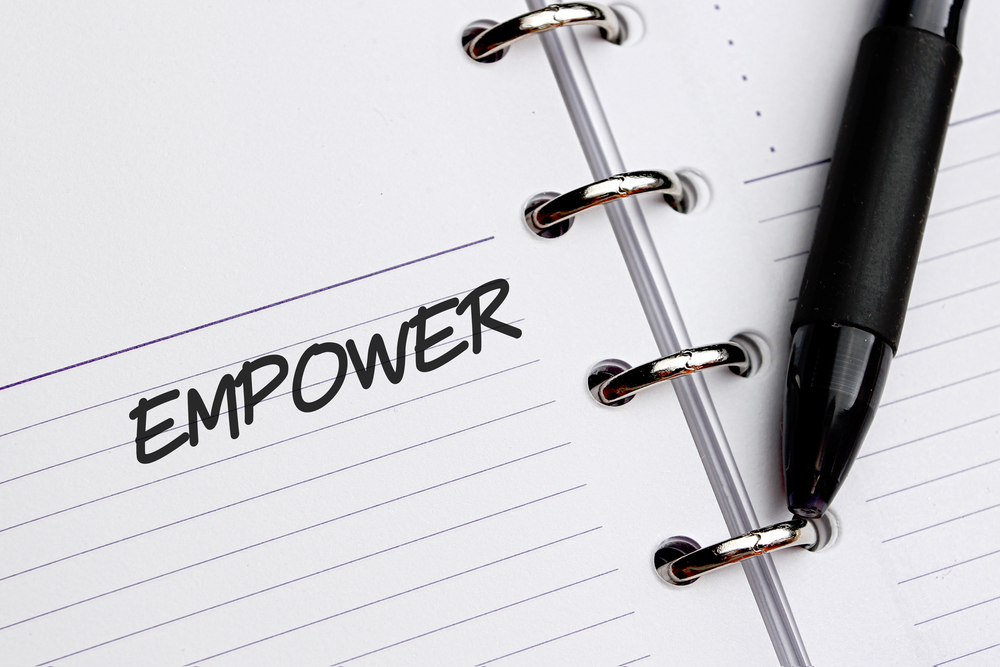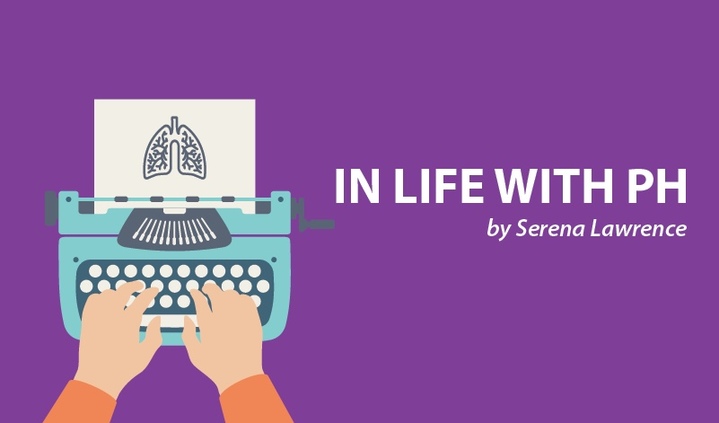How Can We Do More to Empower Patients Who Have Pulmonary Hypertension?
Written by |

In addition to living with a rare and very serious disease, there are a host of accompanying issues. I became aware of how few resources are available to those living with pulmonary hypertension. So, I wondered, how can we empower patients with pulmonary hypertension to handle those issues?
As someone living with pulmonary hypertension (PH), I wish there were more resources available to me. I have heard from others living with PH that they wish more mental health resources were at their disposal. Often, we are diagnosed and sent on our way. Some PH centers do have mental health workers on staff, but it isn’t always required. Suddenly, regular routine check-ups become part of life, along with medications, medical equipment and other necessities.
When I was first diagnosed I had terrible night terrors. Each one had the the same theme. I was in the hospital, dying. I was having this nightmare because I had no idea how to tell the people in my life about my diagnosis. I barely knew how to handle it myself, let alone give the news to other people.
Living with PH is a big adjustment, and perhaps having a mental health professional available could help make the transition a little bit more manageable. At the very least, it would provide us a person with whom we could discuss our fears.
When we consider other life-threatening diseases, such as cancer, more and more research to help empower patients is becoming available. The data collected is allowing us to have a better understanding on what therapies patients can choose, in addition to conventional treatments, to help improve or prolong survival. Many cancer patients who incorporate complementary therapies in combination with their traditional cancer treatments may benefit from improved emotional well-being, along with a reduction in their symptoms.
Likewise, more cancer centers are starting to offer an integrative approach when treating cancer. Some hospitals are now offering rehabilitation services to help their patients through their treatments. By treating a patient beyond their diagnosis, patients are given practical tools to empower themselves. These multidisciplinary services help encourage exercise therapy, and teach the importance of stress management and nutrition. They also offer mental health and counseling services.
Empower beyond disease
Personally, I don’t want to be treated for PH in just conventional ways. I see myself as an entire being. I see myself beyond the disease, but I also see how intertwined the disease is with every other part of my body, physically and spiritually. I want more resources available to me in terms of incorporating complementary therapies. I have tried several alternative therapies, and it has been difficult. I feel like I often am trying things blindly because the data for PH and complementary therapies doesn’t exist as it does for other diseases.
We live in an age where we are gaining great insight into how certain things, like nutrition, impact our health and susceptibility of developing diseases. More data also is becoming available about the positive impact certain diets can have on health. Wouldn’t it be great if we knew more about what foods could help improve our health with pulmonary hypertension?
I find it so difficult to know what diet is right for me as I live with PH. There are so many different conflicting views on veganism, vegetarianism, and consuming dairy and meat (so long as its organic). I’ve done my research, talked to nutritionists, my doctors and naturopaths, and I still find it difficult to navigate to a decision.
I really wish more of these resources were available to us, along with data to support what could be beneficial for us to incorporate into our treatment. Treatment can go beyond the white walls in the hospital. I don’t want to sound like I’ve got my head up too high in the clouds, but I want more. I want to know the benefits of certain alternative therapies for people living with PH. I would like to know what super-foods are best for someone like me. I want to know what lifestyle changes can be the most constructive for what ails me. While I do go to the hospital and doctors more often than a “healthy” person, I want to know what I can do between doctors visits to keep me in the best shape possible.
I also think that having the knowledge about what could help us can empower us. It will give us the option to decide if we want to try a certain complementary therapy or practice. It will give us the choice on how to alter our diet. I know that many of us have those choices anyway, and we make them everyday. However, I would find it encouraging to know that more research has been conducted to find out what could help improve our chances of survival.
So many of us feel like we lost a lot of choices, and power, when we were diagnosed with PH. I think that having more of these choices backed by data would help remedy that. I would love to see the day when my pulmonary hypertension specialists prescribed avocados or meditation, for example, along with my regular treatments.
As someone living with pulmonary hypertension, what would help empower you?
Note: Pulmonary Hypertension News is strictly a news and information website about the disease. It does not provide medical advice, diagnosis, or treatment. This content is not intended to be a substitute for professional medical advice, diagnosis, or treatment. Always seek the advice of your physician or other qualified health provider with any questions you may have regarding a medical condition. Never disregard professional medical advice or delay in seeking it because of something you have read on this website. The opinions expressed in this column are not those of Pulmonary Hypertension News or its parent company, Bionews Services, and are intended to spark discussion about issues pertaining to pulmonary hypertension.





Maureen
Great thoughts. I agree. PH people can highly benefit from Specialists who operate within a multidisciplinary team so all the Resources needed and you refer to Serena are available and part of treatment. from mental health practisers too grief and loss counsellors too nutritionists other allied health professionals and spiritual counsellors. This is a wholistic approach rather than an individual discipline approach which is often the current model.
Serena Lawrence
I have found that a lot of the treatment that I received leaves a lot to be desired. I had one doctor tell me that I was wasting my time by seeing a naturopath, which made it difficult to have someone to talk to about what alternative or complimentary treatments would be safe to try. I think it would be great to see a more wholistic approach available to those who would like to try it.
Maureen
Yes! Sadly there is a lot of ignorance about alternative treatments in the traditional medical field, but there are some Medical doctors who practice both natural and traditional medicine and they have lots too offer. Its thought that the inflammatory process which is involved in and which triggers many diseases, including PH can be treated well by those who understand it and offer alternatives. I would try and find a Medical doctor who also practices natural Health alternatives no matter what some of your doctors say. Being an RN I am well aware of both the pitfalls and the good too of course, of traditional medicine. I am having my first Right Heart Cath shortly. But am fortunate not too have too many symptoms at this stage, only a low DLCO on Pulmonary function testing and which they can't find a reason for on HRCT Scan, and some SOB on certain types of exercise, so we will see. But am expecting the best and not the worst. Serena you are such a fighter and I appreciate so much your blog and your honesty and help which you give to many. Believing you will find many answers and the help you need.
Serena Lawrence
Good luck on your first RHC, I hope everything goes well for you and that you continue to have minimal and manageable symptoms. Thank you for the kind words. Wishing you all the best with your upcoming tests.
Lee Ann Medina
I want someone to see me, and speak to me as they would a family member. Not clinically and send me on my way. When I was first diagnosed 5 weeks ago, all I heard was PH and nothing more...I was scared witless.
I know you could see it on my face, at that point the conversations should have stopped and said are you hearing what I am saying, do you understand what this means, do you have any questions?
Instead she kept on going without stopping and all I heard was PH, oxygen tank and cpap machine...
I am a person, a human and I am scared. When you are presenting evidence which is life altering, giving it to someone clinically with no compassion or what seems like no compassion is useless and quite sterile.
They should allow us to come to medical schools to teach how to talk to us about us...We are more than symptoms, we are feelings, we are thoughts...we are us.
I am still grieving, still processing and I called my doctor up and asked for another appointment so I could talk to her again about what all of this means. I am learning to stand up one moment at a time.
Serena Lawrence
I am sorry to hear about your recent diagnosis, and understand how difficult it can be to have an overly clinical doctor deliver the news. Compassion and care are needed in medical care, especially when delivering such difficult news. It sounds like you are learning quickly on how to become a professional patient by asking to follow up with your doctor. I have found it helpful to have someone go to my appointments with me, bring notes of questions already written down, and record appointments as well on my phone. With all of the information and news we hear, it can be difficult to stay focus and stay on track. Being extra prepared really helped me make the most out of my appointments when I was first diagnosed. Wishing you all the best